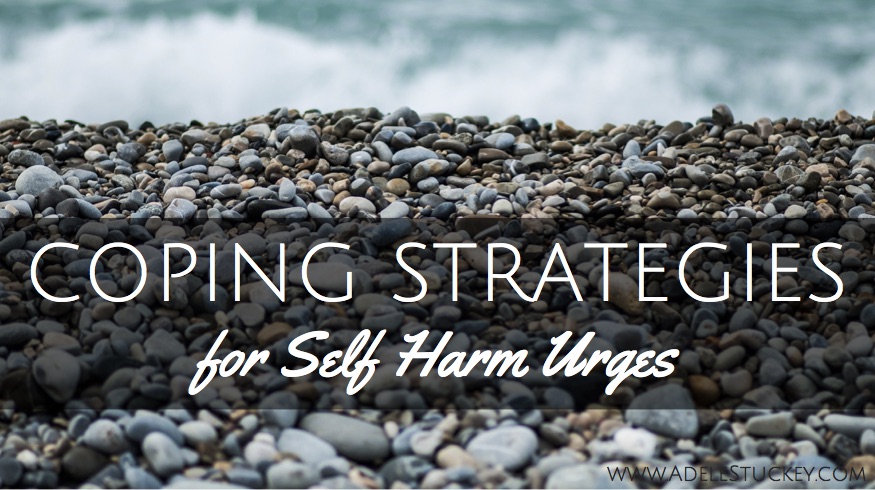Coping Strategies for Self Harm Urges
One of the challenges when working towards self harm recovery is the intensity of the urges to self injure. Below are a several strategies that may help cope with urges.
Urges are like a Wave
Just like an ocean wave, urges come and go. They begin with mild discomfort and can build in intensity, growing stronger. It's important to remember that no feeling or urge will last forever. Though difficult to tolerate in the moment, urges will pass. To help pass this time, try visualizing a wave. Close your eyes and imagine a the wave approaching the shore. Focus on the water building in height as it moves closer to the shore, breaking on the beach, and then quietly returning to the ocean. Visualize again and again until you notice that the focus of your thoughts has shifted.
Deep Breathing
Inhale deeply through your nose and exhale out through your mouth. Breathe in for a count of 3 and out for a count of 3. Breath in peace and exhale out stress.
Talk to Someone
Call, text, or talk to someone in person. Being with someone who is trustworthy can help distract you and provide support if you feel comfortable discussing what is going on.
Distract Yourself
Distract yourself with helpful coping techniques. Make art or listen to music. Visit your favorite website or watch a show.
Move to a New Environment
Sometimes urges come from a reminder in the environment. Keep yourself safe by creating an environment free of harmful objects. If you are feeling urges to self harm and these feelings have been evoked from something in the environment, shift to a different room.
Write Down Your Thoughts
Writing down your thoughts forces you to pause and gather your thoughts. Journaling or jotting down your thoughts literally creates distance and provides a chance for catharsis through writing. It may also be helpful to keep your hands busy while you process your feelings in a healthy way.
Please note that all coping strategies may not work for everyone. I encourage you to try out a variety of coping skills to find those that will work best for you.


